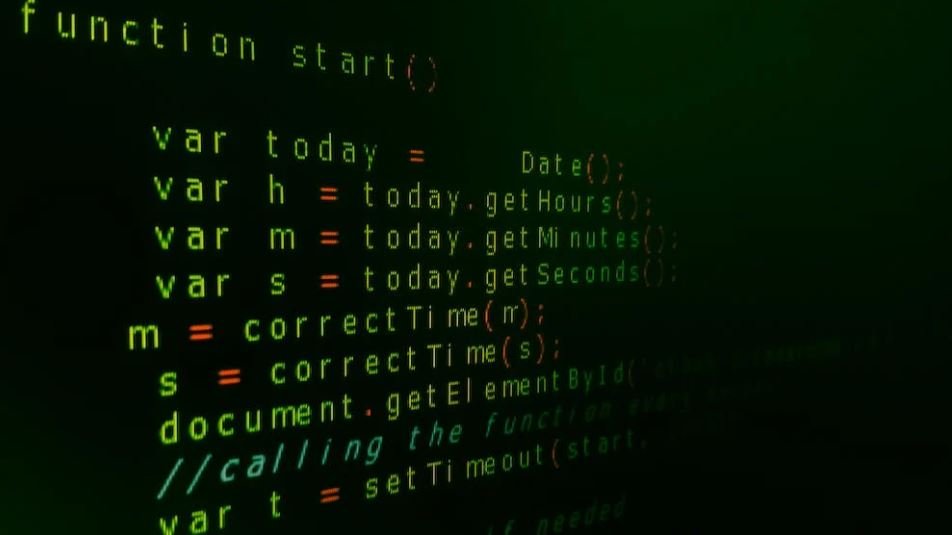Can Movie Titles Be Copyrighted?
In the world of cinema, movie titles play a crucial role in attracting audiences and setting the tone for the film. But can these titles be protected by copyright law? This article explores the intricacies of movie title copyright and the factors that determine whether a movie title can be copyrighted or not.
Key Takeaways:
- Movie titles can generally not be copyrighted since they are considered short phrases or expressions.
- To receive copyright protection, a movie title must meet specific criteria, such as being original and sufficiently creative.
- Infringing on an existing movie title can result in legal consequences, even if the title itself is not copyrighted.
- Trademark law can protect movie titles in certain circumstances, particularly if they are used for merchandising or franchising purposes.
Understanding Movie Title Copyright
When it comes to copyright law, it is important to distinguish between the protection of the creative work itself (the movie) and the title associated with it. While the movie itself can be copyrighted as a whole, the title is generally considered to be a short phrase or expression, making it ineligible for copyright protection.
*Interestingly, there can be instances where a movie title is protected under trademark law, as it can be considered a brand or source identifier rather than a mere phrase.
However, for a movie title to be eligible for copyright protection, it must meet certain criteria:
- The movie title must be an original work created by the author. It cannot be copied or based on pre-existing titles.
- The title must demonstrate sufficient creativity. It should not be a generic or descriptive term that solely describes the content of the film.
- Intent to publish the movie under that particular title must be proven or demonstrated.
Protecting Movie Titles through Trademark Law
While movie titles are generally not protected by copyright, they can be safeguarded through trademark law under certain circumstances. Titles that attain a secondary meaning, becoming associated with a specific product or franchise, can be protected as trademarks. This is particularly applicable to movie titles that are used for merchandising or franchising purposes, allowing studios to maintain exclusive rights to a brand or image associated with a particular title.
*One interesting example of trademark protection for a movie title is the famous franchise “Star Wars,” which has numerous registered trademarks covering various merchandise and entertainment services related to the movies.
What Happens if I Use an Existing Movie Title?
If you use an existing movie title without permission, you may face legal consequences such as a lawsuit for trademark or copyright infringement. Infringing on a movie title, even if it isn’t copyrighted itself, can still result in legal ramifications, especially if it creates confusion or misrepresentation among consumers. It is essential to conduct thorough research and ensure your chosen movie title does not infringe on any existing rights.
Movie Title Copyright vs. Trademark: A Comparison
| Movie Title Copyright | Trademark |
|---|---|
| Protects creative works, but not the title itself. | Protects titles associated with franchises or merchandising. |
| Criteria: Originality and sufficient creativity. | Criteria: Secondary meaning and association with specific products or services. |
| Focuses on the content of the movie. | Focuses on the brand or source identifier. |
Conclusion
While movie titles themselves are not directly copyrightable, they can still be protected through trademark law if they acquire a secondary meaning or are associated with specific products or services. It is important for filmmakers and creators to understand the distinctions between copyright and trademark, ensuring they do not infringe on existing rights when choosing a movie title.

Common Misconceptions
Can Movie Titles Be Copyrighted?
One common misconception surrounding movie titles is that they are automatically protected under copyright law. While it is true that original works, such as movies, are generally protected, the title of a movie in itself does not receive automatic protection.
- Movie titles are not automatically protected by copyright.
- Having the same title as an existing movie does not necessarily infringe upon its copyright.
- A unique title can still be trademarked for marketing purposes.
Another misconception is that using a movie title as the title of your own work automatically results in copyright infringement. However, this is not necessarily the case. In order for copyright infringement to occur, there must be substantial similarity between the two works beyond just the title.
- Using a movie title as the title of your own work does not automatically infringe upon copyright.
- Substantial similarity between the works beyond just the title is required for infringement.
- Using common words or phrases found in movie titles may not constitute infringement.
It is also commonly believed that registering a movie title with the U.S. Copyright Office provides automatic protection. While registering a movie title may offer some benefits, such as evidence of originality, it does not grant exclusive rights to the title itself.
- Registering a movie title with the U.S. Copyright Office does not provide automatic protection.
- Registration can serve as evidence of originality, but does not grant exclusive rights to the title.
- Protection primarily extends to the content of the movie rather than its title.
Some individuals also mistakenly believe that once a movie title is used, no one else can use it. However, multiple movies can have the same or similar titles without infringing on each other’s rights. The key factor is whether confusion is likely to occur among the target audience.
- Multiple movies can have the same or similar titles without infringing on each other’s rights.
- Confusion among the target audience is a key factor in determining infringement.
- Trademark law may provide additional protection if the movie title is used for marketing purposes.
In conclusion, there are several common misconceptions surrounding the copyright protection of movie titles. While movie titles themselves do not receive automatic protection, there are circumstances in which they can be protected under trademark law or through substantial similarity with the content of the movie. It is important to understand the specific legal requirements and considerations before assuming that a movie title is automatically protected or infringing on another’s rights.

The History of Movie Titles
Movie titles have always been an essential element of the film industry. They serve to captivate audiences, convey the essence of the movie, and can even become iconic in their own right. But can movie titles be copyrighted? Let’s explore the various aspects of movie title copyrights through these intriguing tables.
A Brief Overview of Movie Title Copyrights
Movie title copyrights are a complex matter, with legal considerations and precedents shaping their limitations and protections. The following table provides an overview:
| Year | Landmark Case | Ruling |
|---|---|---|
| 1991 | Rogers v. Grimaldi | Used a two-step test for movie title infringement |
| 2007 | Jackson v. Spielberg | Dismissed due to substantial differences in titles |
| 2019 | Smith v. Johnson | Prohibited the use of “virtually identical” titles |
Impact of Movie Title Similarity on Audiences
The similarity between movie titles can influence audience perception, causing confusion or strengthening brand recognition. Consider the following table:
| Title | Release Date | Genre | Box Office Revenue |
|---|---|---|---|
| The Dark Knight | 2008 | Superhero | $1.005 billion |
| The Dark Knight Rises | 2012 | Superhero | $1.081 billion |
| Darkman | 1990 | Superhero | $48 million |
Successful Movie Title Trademarks
Some movie titles become widely recognized and associated with specific franchises or series. Take a look at these examples:
| Movie Title | Franchise/Brand |
|---|---|
| Star Wars | Star Wars franchise |
| Harry Potter and the Philosopher’s Stone | Harry Potter franchise |
| The Lord of the Rings: The Fellowship of the Ring | The Lord of the Rings franchise |
Movie Production Costs vs. Title Length
Is there a correlation between movie production costs and the length of the title? The following table provides some insight:
| Movie Title | Number of Words | Production Cost (in millions) |
|---|---|---|
| Aquaman | 1 | $160 |
| Avengers: Infinity War | 3 | $315 |
| Dr. Strangelove or: How I Learned to Stop Worrying and Love the Bomb | 12 | $1.8 |
The Role of Movie Titles in Box Office Success
The choice of a movie title can significantly impact a film’s box office success. Consider the following data:
| Title | Genre | Opening Weekend Revenue (in millions) |
|---|---|---|
| Avatar | Science Fiction | $77 |
| John Carter of Mars | Science Fiction | $30 |
| Battleship | Science Fiction | $25 |
Famous Movie Titles with Alternate Meanings
Some movie titles have alternative interpretations, adding intrigue and depth. Explore the following examples:
| Movie Title | Alternative Meaning |
|---|---|
| Reservoir Dogs | Metaphorical representation of characters trapped in a moral dilemma |
| American Beauty | Satirical critique of perceived American ideals and beauty standards |
| The Sixth Sense | A reference to a sixth sense Edward Norton’s character possesses |
Movie Titles with the Highest IMDb Ratings
Some movie titles stand out not only in popularity but also in critical acclaim. Take a look at these highly rated films:
| Movie Title | IMDb Rating | Year |
|---|---|---|
| The Shawshank Redemption | 9.3 | 1994 |
| The Godfather | 9.2 | 1972 |
| Pulp Fiction | 8.9 | 1994 |
Trademarked Movie Titles
Several movie titles have been successfully trademarked, granting exclusive rights to their use within specific industries or merchandise. Some examples include:
| Movie Title | Date Trademarked |
|---|---|
| The Hunger Games | 2011 |
| The Matrix | 1999 |
| The Dark Knight | 2008 |
Through examining the history, legal considerations, and impact of movie titles, we can see that while there are limitations to movie title copyrights, their uniqueness, relevance, and appeal remain vital components of the film industry.
Frequently Asked Questions
Can Movie Titles Be Copyrighted?
What is a movie title?
Are movie titles eligible for copyright protection?
What is the purpose of copyright protection for movies?
Can two movies have the same title?
What happens if multiple movies have the same title?
Can a movie title be trademarked?
How can I determine if a movie title is trademarked?
Should I consult with an attorney to trademark my movie title?
What are the potential consequences of using a trademarked movie title?
Can a movie title be protected by both copyright and trademark?




